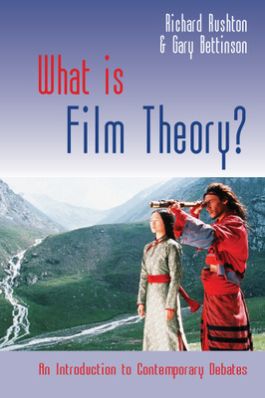What Is Film Theory?
- Access the eBook anytime, anywhere: online or offline
- Create notes, flashcards and make annotations while you study
- Full searchable content: quickly find the answers you are looking for
Structuralism and semiotics: The foundations of contemporary film theory
Apparatus theory: Jean-Louis Baudry and Christian Metz
Screen theory: Colin MacCabe and Stephen Heath
Feminism and film: Visual pleasure and identificatory practices
Cinemas of the other: Postcolonialism, race and queer theory
Philosophers and film: Gilles Deleuze and Stanley Cavell
Film as art: Historical poetics and neoformalism
The cognitive turn: Narrative comprehension and character identification
Recent developments: Phenomenology, attractions and audiences
Professor James Donald, The University of New South Wales, Australia
This engaging and accessible book explores major debates in contemporary film theory, providing a detailed introduction to the central arguments advanced by film theorists since the 1960s.
What is Film Theory? outlines the discipline's key theoretical concepts, perspectives, and traditions, and critically examines the assertions posited by exemplary film theorists and philosophers of film. A step-by-step approach to these issues guides the reader through the central topics of film theory.
Beginning with a discussion of structuralism and semiotics, and moving through debates on psychoanalysis, feminism, Screen theory, and cultural studies, the authors then examine the perspectives of 'post-theory', cognitivism, and historical poetics, as well as recent developments such as audience research and the 'cinema of attractions'.
Analysis of the major theories is supported with detailed and wide-ranging case studies of particular films, including Singin' in the Rain, The Searchers, Tout va bien, Jaws, Do the Right Thing, Brokeback Mountain, and Sweeney Todd: The Demon Barber of Fleet Street. These case studies are accompanied by a series of illustrative film and production stills.
What is Film Theory? is indispensable reading for all students of Film and Media Studies, as well as for general readers interested in the debates which have defined film theory.

